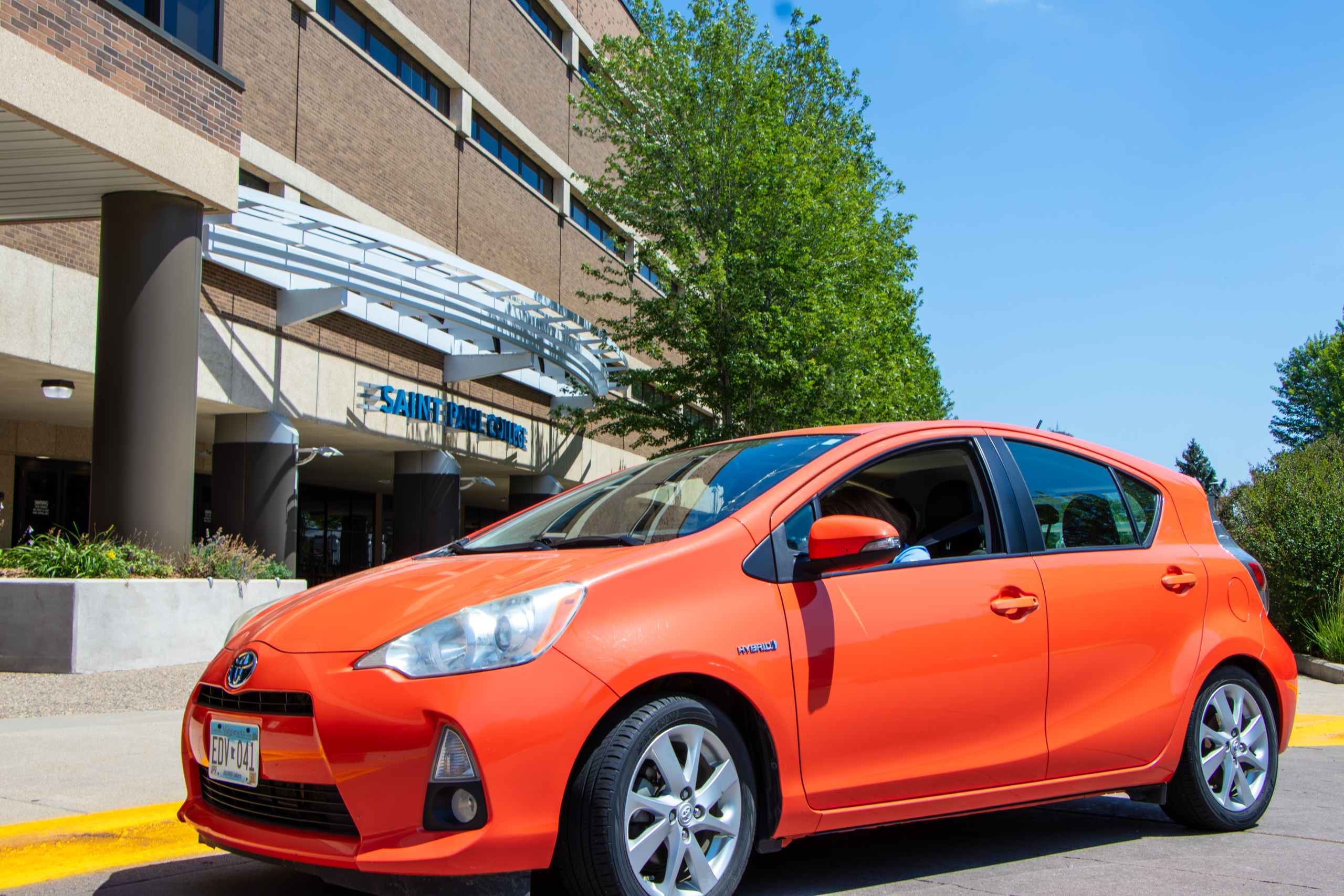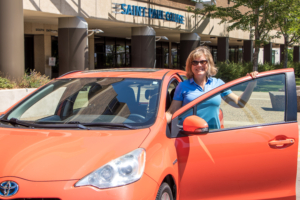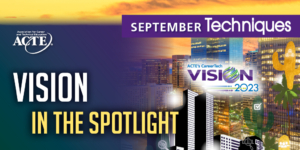Sustainability, electric vehicles, solar, wind, charging stations, renewable energy, technology, innovation, and investment: All of these words represent a shifting landscape. The way of the world is changing, with a new emphasis on cleaner, more efficient living. Since President Biden’s Inflation Reduction Act, and as we witness a rapid push toward sustainable trades and equipment, an exciting new industrial revolution is upon us.
Saint Paul College is kick-starting a hybrid and electric vehicle (EV) program, which will launch in 2025.
I started as the dean in July 2022 and was welcomed with open arms by a very excited and passionate automotive faculty team. Two faculty in particular were well on their way to starting this program! My love for sustainability combined with their passion for and knowledge of the auto industry made the complex work to start a program fun and rewarding. As of 2023, our college is planning the remodel of a current lab space and will begin teaching an introductory course with a newly purchased Toyota Prius and a Chevy Volt.
The Saint Paul College auto team is thoughtful and creative in their approach to partnership development, creating surveys and taking advantage of Perkins dollars for training. There were times we talked about the challenges of hybrids/EVs and shared articles and research, and we haven’t always agreed. But each and every stakeholder has remained engaged and thoughtful, and we have learned many new things about how these cars are perceived and how they perform in different climates.
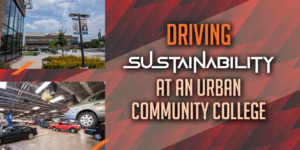
Find a spark.
The momentum around hybrids and EVs started long before I arrived at Saint Paul College. They had already made a financial investment in the program. And senior leadership felt strongly this was the right direction for new programming (credit and non-credit based). EV and hybrid technology has been growing, with EV sales climbing more than 40% since 2016 (McKinsey >amp; Company, 2022). Further, this growth in sales is closely tied to population density and prevalence of a large metro area, which makes Saint Paul College the perfect fit!
My tasks were to figure out what funds were available and how we could best spend the money to ensure a safe environment, training, and teaching resources for students and faculty. The college had already added $30,000 to the current Perkins plan. And we put that money to work, getting two used hybrid vehicles and advanced training for faculty. The auto team met with companies like Caliber Collision and Xcel Energy to learn about industry needs. And these meetings magnified the need and the rapid pace of job growth to expect.
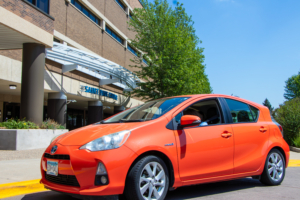
Leverage partnerships and committees.
Collaboration was critical in helping us determine local needs and concerns about implementation. Saint Paul College is located in an urban area close to a number of dealerships that are making changes to their fleets. So, together with the Minnesota State Transportation Center of Excellence, the auto team developed a survey to ask industry experts about what they needed. Their responses encompassed a demand for skilled technicians. And as a result, faculty received additional, specialized training in summer 2023.
Auto faculty also have taken special care to determine what is needed for an EV/hybrid lab. There are fire safety protocols, insurance implications, and special shelves and gloves required to handle the equipment. Our facilities team worked closely with the faculty and a third-party contractor on how to best create the lab space. And it can’t go without saying that the college’s curriculum and assessment coordinator was a critical part of this process!
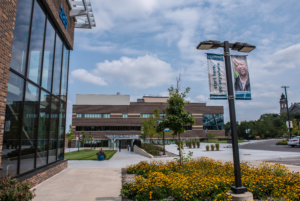
Become comfortable with not knowing.
Many car manufacturers are conducting in-house training and making bold commitments to sustainability. Such rapid growth will affect industries outside automotive as well. In fact, Edison Electric Institute has estimated a need for 12.9 million EV charging ports by 2030.
The electrifying world of cars is disrupting education. What equipment and training do learners need? How do we sell, order parts and conduct maintenance on these vehicles? There are still a lot of unknowns. This industry is undergoing a change and we are still trying to figure out the best pathways forward.
Commit to sustainability.
This is an amazing time to work in career and technical education! There are so many opportunities for funding and collaborations. But also, it can be overwhelming to pick a direction. My best advice is to build a committee of supporters from K–12 and postsecondary education, industry, and nonprofits. Empower team members to become strong advocates for technology and innovation in teaching and learning. And do a lot of research on other programs; ask questions about enrollment, industry demand, staffing and lessons learned. No matter your role in CTE, now is a great time to start building and expanding sustainable programs.
V.A. Hayman Barber (she/her/hers) is the dean of trade and tech education at Saint Paul College, a technical and community college in Saint Paul, Minnesota.
Lew Olivier and Jake Yernberg also contributed to this article. Lew and Jake are full-time automotive instructors at Saint Paul College and the heart and soul behind developing these EV/hybrid programs.
